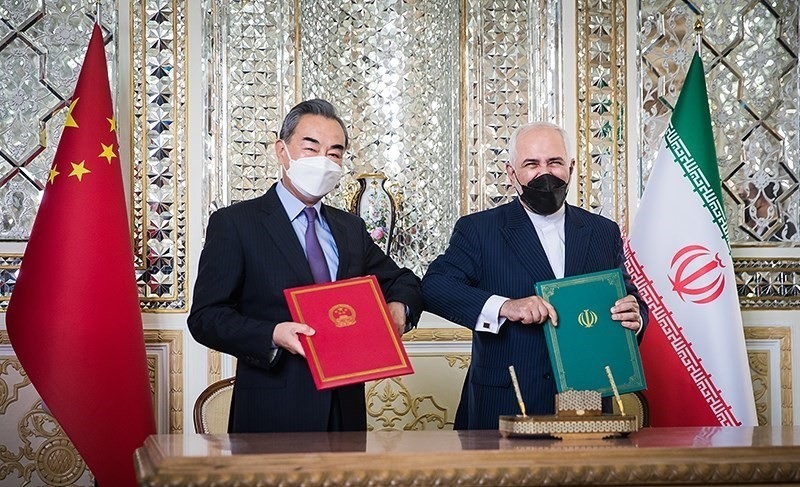How credible is China’s plan to play a constructive role in resolving the problems of the Middle East?

By Duncan Bartlett | 28 May 2021
China is becoming more active in the Middle East, presenting itself as being “on the opposite side of international justice” to the United States. But does it have enough diplomatic clout to become a peace broker in a volatile region?
China would like to create the impression that it is an agent for peace and justice in the Middle East.
It would also like to suggest that the United States, by arming and supporting Israel, has been fuelling the flames of conflict.
The recent violence in Gaza, which killed more than 230 Palestinians and 12 Israelis, shocked the world and generated extensive TV coverage, with viewers transfixed by the dramatic mid-air missile battles.
When a ceasefire was reached after a week and a half, brokered by Egypt’s President Abdel Fattah al-Sisi, China sought to take a share of the credit.
China also promised to provide a million worth of emergency aid and 200,000 doses of Covid-19 vaccines to the Palestinians. It says it hopes to play a “constructive role” not just in resolving the Israel-Palestine conflict but across the Middle East region.
China’s Foreign Minister Wang Yi said he supports “a two-state solution” for the Palestinian people. He has offered to host talks between the conflicting parties in Beijing.
Opposing sides
Minister Wang chided the US for blocking a resolution condemning Israel at the UN Security Council and claimed this shows America is “standing on the opposite side of international justice” to China.
The Gaza violence presented the first major foreign policy challenge for the new Biden administration. Under President Trump, America took a strong pro-Israel line. Biden supports Israel but is attempting to follow a more even-handed approach, mindful that many of his supporters in Congress are sympathetic to the Palestinian cause.
“Israel has the right to defend itself and to respond to rocket attacks. The Palestinian people also have the right to safety and security just as Israelis do” US State Department spokesman Ned Price told a press briefing in Washington.
This nuanced position of the US can come across as looking inconsistent or confused. China hopes this will be seen as a weakness. Steve Tsang, Director of the SOAS China Institute at the University of London, says China is in a better position than many countries to mediate, as it has good relations with both sides in the conflict, but in his view, it has done little to contribute to a long-term solution.
While China has been critical of the US, it has also been restrained in its condemnation of Israel. China invests in Israel and the two countries often collaborate on technology projects.
Credibility issue
China also faces a credibility issue in the Middle East, due to its treatment of its own Muslim Uyghur minority in Xinjiang. This does not stop countries from forming friendships or partnerships with China but Professor Tsang senses that it causes discomfort in many Muslim states. “The Arab world is largely refraining from openly criticizing China over Xinjiang but the repression of the Muslims is nevertheless causing people to question China’s intentions,” he says.
Traditionally, China has been cautious about becoming too involved in the complex regional conflicts of the Middle East. Yet recently it has grown more active, both politically and economically.
In March this year, it reached a ‘comprehensive strategic’ partnership with Iran, which is scheduled to last for 25 years. China’s foreign minister Wang Yi pledged that Iran and China will remain supportive of each other, no matter what changes occur in the global political situation over that period.
Iran has been deeply involved in the recent conflict in Gaza, providing the Palestinian forces with the technology to build thousands of rockets, which have been fired at Israel. Many of them were intercepted by Israel’s ‘Iron Dome’ aerial defence system, although a few reached their targets and caused serious damage and loss of life.
The Israeli army uses sophisticated equipment from America and has an arsenal of nuclear weapons. In the recent conflict, the Israeli air force launched a series of airstrikes on Gaza using US-supplied weapons.
China and Iran
Iran is hailed as an important partner of China’s Belt and Road Initiative and it is valued for its oil. Iran’s burgeoning market is also seen as a key destination for Chinese goods and services.
The financial details of the comprehensive strategic partnership were not outlined in detail. However, a New York Times report, later quoted by China’s Global Times, estimates that China’s investment into Iran over the 25 year period will total $400 billion.
This money will be primarily targeted at developing Iran’s infrastructure, from transport and ports, to telecommunications and health care systems.
The Iranian Foreign Minister, Javad Zarif, has given assurances that in return, Iran will be a key partner in ensuring China’s energy security. Media reports claim the oil will be supplied at a discounted rate, although it appears that the price remains under negotiation.
Professor Tsang says: “China has shown that it is primarily interested in securing energy supplies and hopes to see the USA fail. This explains why Iran matters more to China than any non-oil producing Middle Eastern country.”
The deal with China comes at a crucial time for the Iranian economy and should help to alleviate the effect of sanctions led by the United States, which have left Iran largely excluded from the global banking system.
The value of Iran’s currency has plummeted, while the inflation rate has soared. Under President Donald Trump, the United States imposed a complex web of sanctions on Iran as part of a strategy of “maximum pressure” to force the country to abandon its nuclear program.
Nuclear talks
Since Joe Biden became US president, there have been preliminary negotiations between the US and Iran through European intermediaries in Vienna. The goal is to find a way for Iran to return to the Joint Comprehensive Plan of Action (JCPOA) on the nuclear issue. China is keen to be a part of the debate.
In an interview with Al Arabiya, foreign minister Wang Yi said that the US should ease unilateral sanctions against Iran but added that Iran should resume fulfilling its nuclear commitments. He also voiced his support for efforts by countries in the Middle East to establish a zone free of nuclear and other weapons of mass destruction.
Aside from its energy resources, the Middle East is also important to China from a military-strategic standpoint. The region could be seen as a buffer zone against foreign aggression on China’s western frontier.
However, as Professor Tsang notes, the partnership between China and Iran is not a military alliance. “China does not want to put the People’s Liberation Army at the disposal of any other nation, especially any country in the turbulent Middle East region,” he says.

Duncan Bartlett is a Research Associate at the SOAS China Institute, and hosts the Institute’s weekly podcast, China In Context. He is also the Editor of Asian Affairs magazine and is a former BBC presenter.
The views expressed on this blog are those of the author(s) and are not necessarily those of the SOAS China Institute.
SHARE THIS POST
